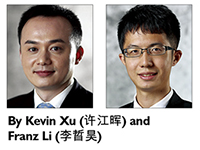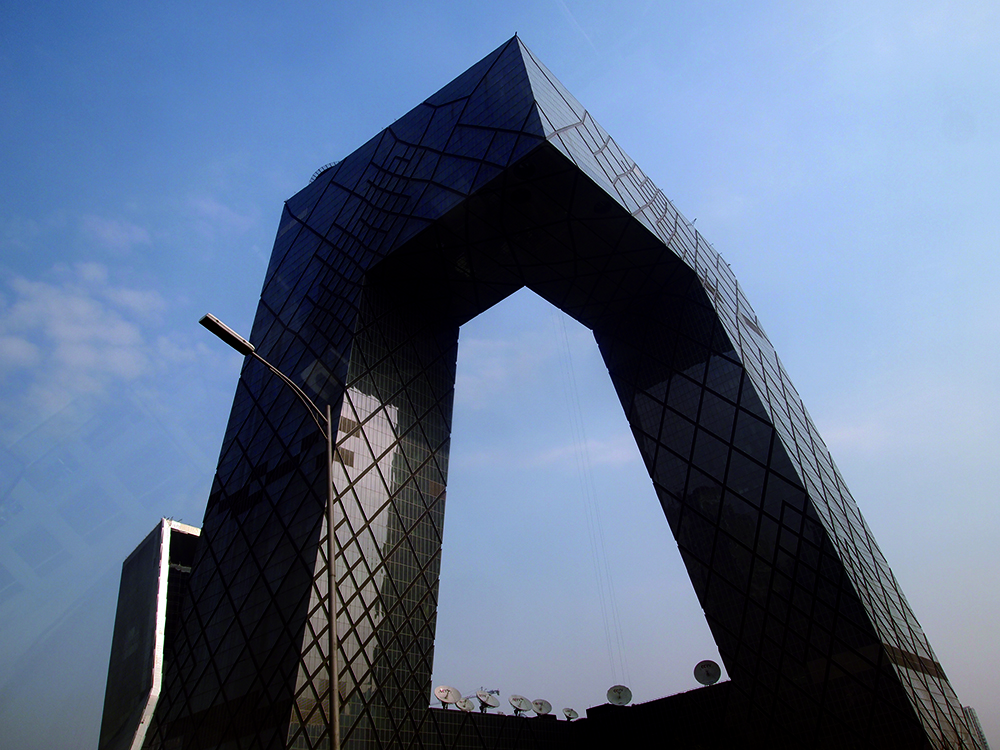
8F, Kerry Parkside Office,1155 Fang Dian Road, Shanghai 201204, P. R. China
Tel: (86) 21 50101666*990 / Fax: (86) 21 50101222
E: kevin.xu@mhplawyer.com • franz.li@mhplawyer.com
W: www.mhplawyer.com
 In our last article titled “Apple Sued Qualcomm in China, Qualcomm Is Suspected of Abusing Market Dominant Position Again?”, we listed the cases in which Qualcomm was investigated, sued or punished in countries (and regions) for abusing its dominant market position and briefly introduced Qualcomm’s worldwide business model.
In our last article titled “Apple Sued Qualcomm in China, Qualcomm Is Suspected of Abusing Market Dominant Position Again?”, we listed the cases in which Qualcomm was investigated, sued or punished in countries (and regions) for abusing its dominant market position and briefly introduced Qualcomm’s worldwide business model.
In this article, we will further analyse Apple’s claims in the case of Apple vs Qualcomm regarding abuse of dominant market position from the perspective of PRC laws, with reference to other relevant cases and the facts that we collected through public channels.
1. Qualcomm charges unfairly high royalties for licensing of standard essential patents (SEPs) and sets unreasonably strict conditions for Apple to obtain such licences
It is not difficult to determine that such claim is based on items (1) and (6) paragraph 1 of Article 17 of the Anti-monopoly Law. Pursuant to these two provisions, “selling commodities at unfairly high prices” and “applying dissimilar prices or other transaction terms to counterparties with equal standing” both belong to abusing of dominant market position. Qualcomm made a response to such claim a couple of days after Apple’s filing, stating that Apple was offered terms consistent with those accepted by more than 100 Chinese companies and those terms were in conformity with Qualcomm’s rectification plan approved by the National Development and Reform Commission of PRC (NDRC) in 2015 (according to the rectification plan, Qualcomm commits to reduce the royalty base to 65 percent of the net selling price of mobile phones). In our opinions, if Qualcomm’s statement in its response is true, it might be very difficult for Apple to win the support from the court for such claim. After all, NDRC is the most authoritative enforcement agency of price monopoly in China and the court will not easily challenge the rectification plan approved by it.
2. Qualcomm refuses to license SEPs to some SEPs users
Korea Fair Trade Commission (KFTC) and US Federal Trade Commission (FTC) both determined that Qualcomm’s conduct of “refusing to license mobile communication SEPs to rival chipset makers” is illegal. We are inclined to believe that Apple would intend to take this opportunity to challenge Qualcomm’s business model and it is very likely that Apple will take reference of the penalty decision made by KFTC. From the perspective of PRC laws, Qualcomm’s conducts may fall into “refusing to trade with a trading party without any justifiable cause” and “violating the principles of fairness, reasonableness and no discrimination in refusing to licence, bundling or attaching any other unreasonable transaction conditions at the time of transaction so as to eliminate or restrict competition after their patent becomes a standard essential patent” that are respectively prohibited by item (3) paragraph 1 of Article 17 of Anti-Monopoly Law and item (2) paragraph 2 of Article 13 of the Provisions on Prohibition of Abuse of Intellectual Property Rights to Exclude and Restrict Competition.
3. Qualcomm restricts Apple to use exclusively the products/services it supplies or approves to use
During the investigation against Qualcomm, FTC mentioned that Qualcomm has paid accumulatively several billion US dollars to Apple in return for entering into exclusive chipset purchase agreements with Apple and for the purpose of hampering rival chipset makers. We guess that Apple’s claim has some connections with the aforesaid rebate and exclusive agreement. The conduct of hampering competitors through granting rebate has already been determined illegal by the State Administration for Industry & Commerce of PRC (AIC) in the Tetra Pak case. Therefore, if the aforesaid statement of the FTC is true, Qualcomm is also suspected of violating item (4) paragraph 1 of Article 17 of the Anti-Monopoly Law, ie “a business operator with a dominant market position shall not require a trading party to trade exclusively with itself or trade exclusively with a designated business operator(s) without any justifiable cause through abusing its dominant market position”.
Qualcomm has not yet given any response to the aforesaid claim 2 and claim 3 of Apple. It seems that Qualcomm is not confident enough, as some other countries have already determined its conducts illegal. Meanwhile, Apple chose to submit the dispute to the court directly rather than reporting to AIC in China, demonstrating that Apple’s intention is to compel Qualcomm to reach a settlement with it through claiming a high compensation and putting pressure on Qualcomm in the court of public opinion — that is, to subdue the enemy without fighting, a strategy from Sun Tzu’s Art of War. In our opinion, as long as Qualcomm’s illegal conduct does exist, no matter what approach Apple will take, it should not affect AIC’s initiation of anti-trust investigation against Qualcomm for the purpose of protecting the public interest.
It should be noted that in the lawsuit brought by Apple against Qualcomm in the US in January 2017, in which Apple claimed US$1 billion, Qualcomm has recently filed counterclaims against Apple, alleging that Apple breached agreements with Qualcomm; interfered with Qualcomm’s long-standing agreements with Qualcomm licencees; and encouraged regulatory attacks on Qualcomm’s business in various jurisdictions around the world by misrepresenting facts and making false statements; etc. It can be seen that such counterclaims have made the situation more complicated and are Qualcomm’s revenge against Apple from another perspective rather than a statement of defence with regard to Apple’s anti-trust claims. It is not clear whether Qualcomm’s counterclaims will have any impact on Apple’s lawsuit in China. In addition, it has not yet come out any update on this case since Apple’s filing. All we can do is continue to wait and see.
再论苹果中国起诉高通
在上一篇题为《苹果中国起诉高通,高通再次涉嫌滥用市场支配地位?》的文章中,我们列举了近些年来高通公司因滥用市场支配地位行为被各国(地区)调查、起诉或处罚的情况,并总结了高通公司在全球范围内普遍采取的涉嫌滥用市场支配地位的商业模式。
我们将在本文从法律角度出发,结合从公开渠道获取的一些案外事实及其他相关案件的情况,具体分析苹果公司诉高通公司滥用市场支配地位一案的各项起诉理由。
1. 高通公司收取的标准必要专利许可费用及向苹果公司发出的许可条件过高
从字面意思上看,不难判断出此项起诉理由的法律依据是中国《反垄断法》第十七条第一款第一项和第六项。根据这两项法律规定,”以不公平的高价销售商品或者以不公平的低价购买商品”和”没有正当理由,对条件相同的交易相对人在交易价格等交易条件上实行差别待遇”均属於被禁止的具有市场支配地位的经营者从事滥用市场支配地位的行为。针对苹果公司的此项主张,高通公司在其提起诉讼的几天后即做出回应称:其向苹果公司提供的许可条件,与超过100多家中国公司同意并接受的条款相一致,且符合2015年获得中国国家发改委同意的整改方案(根据此项整改方案,高通公司将相关专利许可费率的计费基准降低为手机净售价的65%)。我们认为,如果高通公司在其回应中所述的情况属实,苹果公司这一项基於许可费及许可条件的起诉理由可能很难获得法院的支持,毕竟中国国家发改委是中国价格垄断最权威的执法部门,法院一般不会轻易挑战已经获得其同意的整改方案。
2. 拒绝向某些标准技术实施者提供许可
鉴於韩国公平贸易委员会及美国联邦贸易委员会均认定高通公司”拒绝授权芯片制造业竞争对手使用标准必要专利”属於违法行为,不难看出,苹果公司希望以此为契机在中国向高通公司的此项行为发出挑战,同时有很大的可能性苹果公司将在案件中援引韩国公平贸易委员会做出的处罚决定。从中国法律的角度出发,高通公司的做法涉嫌违反《反垄断法》第十七条第一款第三项和中国工商总局《关於禁止滥用知识产权排除、限制竞争行为的规定》第十三条第二款第二项,即”没有正当理由,拒绝与交易相对人进行交易”和”在其专利成为标准必要专利后,违背公平、合理和无歧视原则,实施拒绝许可、搭售商品或者在交易时附加其他的不合理交易条件等排除、限制竞争的行为。”
3. 限定苹果公司使用其提供的或批准使用的产品/服务
美国联邦贸易委员会在对高通公司的调查中曾经提及,高通公司曾累计支付苹果几十亿美元回扣,以换取与苹果公司签署排他性的芯片采购协议,排挤芯片业竞争对手。我们猜测苹果公司的此项起诉理由与上述回扣及排他性协议相关。经营者通过折扣滥用市场支配地位排挤竞争对手的行为已在利乐案中被中国工商总局明确为违法行为。因此,如果美国联邦贸易委员会提到的上述情况属实,高通公司也涉嫌违反《反垄断法》第十七条第一款第四项的规定,即”没有正当理由,限定交易相对人只能与其进行交易或者只能与其指定的经营者进行交易”。
针对上述第2和第3项苹果公司的起诉理由,高通公司未作出任何回应,可以看出在相关违法事实已经被其他国家确认的情况下,高通公司似乎有些底气不足。同时,在本案中,苹果公司选择直接向法院提起诉讼的方式寻求救济,而非向中国工商总局举报,似乎是出於商业方面的考量,意图以高额索赔及舆论压力迫使高通公司与其达成和解,从而达到不战而屈人之兵的目的。但是,我们认为,如果高通公司的违法事实确实存在,不管苹果公司采取什麽样的策略,都不应当影响到中国工商总局为保护公共利益对高通公司进行反垄断调查。
值得注意的是,针对苹果公司在2017年1月向美国法院提起的索赔十亿美元专利费的诉讼,高通公司於近期提出了反诉,其反诉理由包括苹果公司违反了双方之间的协议;干涉高通公司与其他厂商之间的联系;在全球范围内恶意鼓动监管机构对高通公司的业务发起攻击等。可以看出,高通公司的反诉并非针对反垄断指控而提出的抗辩,而是从另一个角度对苹果公司的回击,意图将案件复杂化。至於高通公司在境外提出的这一反诉是否会影响双方在中国的案件,不甚明朗。并且自苹果公司提起诉讼后,也未传出与案件有关新的进展,我们能够做的似乎只有继续等待。
















